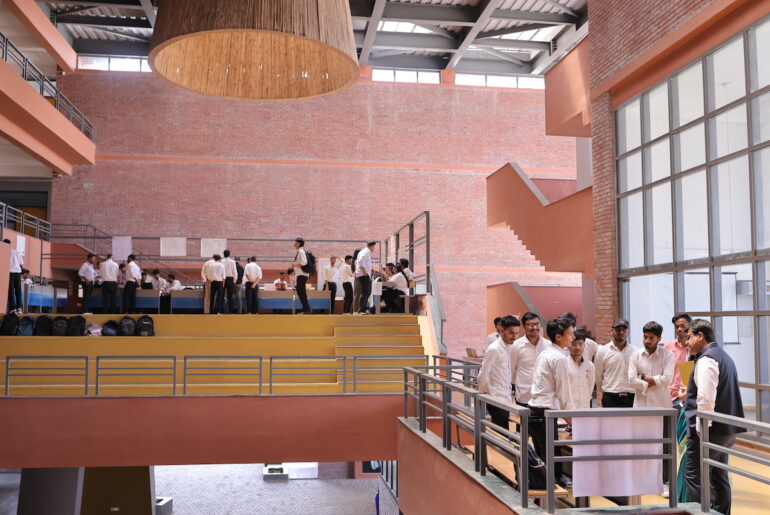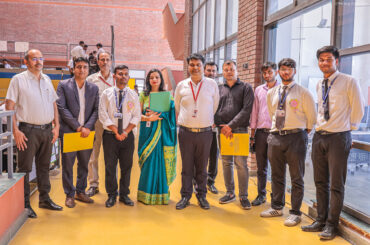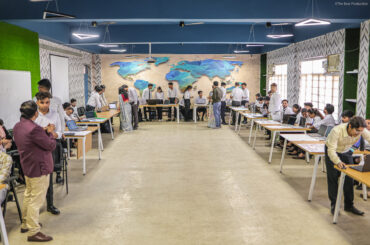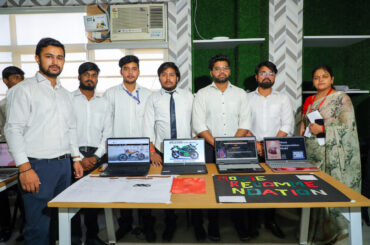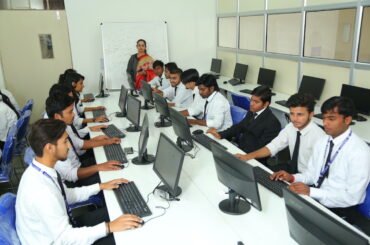BCA Subjects
BCA subjects encompass a comprehensive range of topics designed to provide students with a solid foundation in computer science and its applications.
Key subjects include Programming Languages like C, C++, Java, and Python, which are essential for software development. Data Structures and Algorithms focus on efficient data management and problem-solving techniques.
Database Management Systems (DBMS) teach students about data storage, retrieval, and manipulation. Operating Systems cover the principles and functions of operating systems, while Computer Networks explore network architectures, protocols, and security.
Web Development introduces front-end and back-end web technologies. Additionally, subjects like Software Engineering, Object-Oriented Programming, and Computer Architecture provide insights into software design, programming paradigms, and hardware components.
Mathematics, particularly Discrete Mathematics and Statistics, plays a crucial role in developing analytical and problem-solving skills.
Electives in areas like Artificial Intelligence, Machine Learning, and Cyber Security allow students to specialize in cutting-edge technologies and industry-relevant domains.
Some of the most opted courses in India and St. Andrews college or different Engineering college or Management colleges are as follows:-
- Btech
- Btech CSE
- Btech ETCE
- MTech
- BCA
- BBA
- MBA
- MCA
- DPharma – St. Andrews College of Pharmacy
- BPharma – St. Andrews College of Pharmacy
- BArch – St. Andrews College of Architecture
Core Curriculum and Key Subjects in BCA
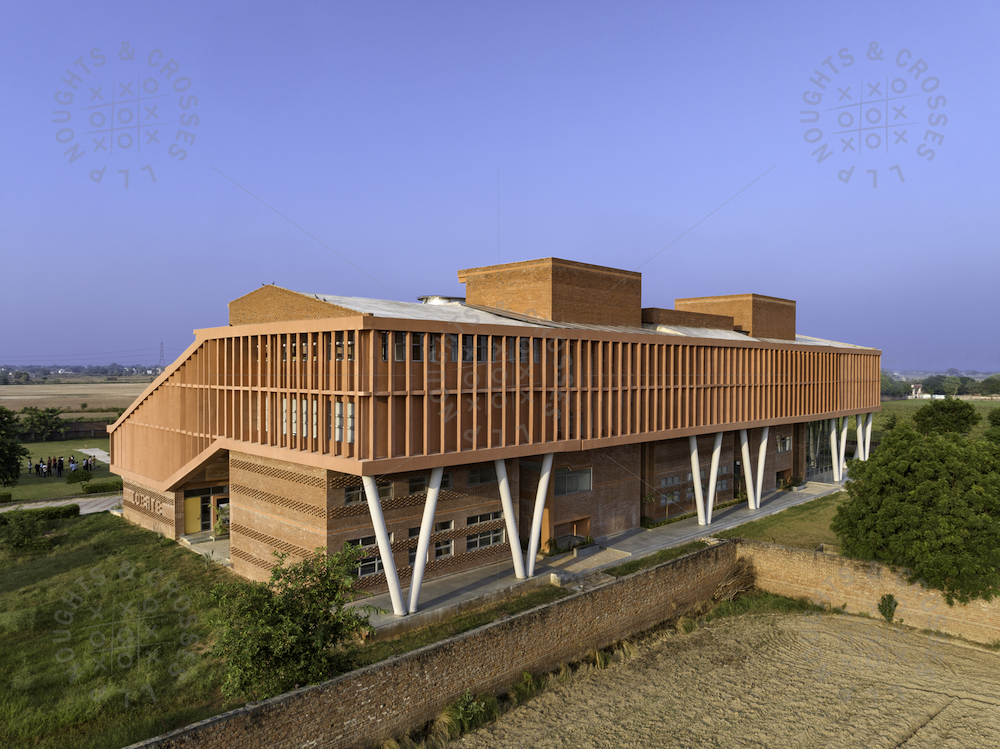
The core curriculum of a BCA (Bachelor of Computer Applications) program typically includes key subjects that provide students with a solid grounding in information technology and computational principles.
Here are some of the key subjects commonly found in BCA programs:
Fundamentals of Computers
Introduces basic concepts of computer systems, hardware, software, and operating systems.
Programming Principles and Algorithms
Covers fundamental programming concepts, algorithm design, problem-solving techniques, and programming languages like C, C++, or Java.
Data Structures
Focuses on the study of data organization, storage, retrieval, and manipulation using various data structures such as arrays, linked lists, stacks, queues, trees, and graphs.
Database Management Systems (DBMS):
Introduces database concepts, relational database management systems (RDBMS), SQL (Structured Query Language), database design, normalization, and database administration.
Operating Systems
Provides an overview of operating system concepts, processes, threads, memory management, file systems, device management, and system security.
Computer Networks
Covers fundamentals of computer networking, communication protocols, network devices, LANs (Local Area Networks), WANs (Wide Area Networks), and network security.
Software Engineering
Introduces software development methodologies, software requirements engineering, design principles, testing techniques, and project management.
Object-Oriented Programming (OOP)
Focuses on object-oriented programming concepts such as classes, objects, inheritance, polymorphism, encapsulation, and abstraction using languages like Java or C++.
Web Technologies
Covers basics of web development technologies such as HTML, CSS, JavaScript, server-side scripting languages (e.g., PHP, Python), web frameworks, and web development tools.
Mathematics for Computing
Provides mathematical foundations relevant to computing such as sets, relations, functions, algebra, calculus, probability, and statistics.
System Analysis and Design
Introduces systems analysis and design methodologies, requirements gathering, system modeling, design techniques, and documentation.
Digital Electronics
Covers basics of digital electronics, binary number system, logic gates, Boolean algebra, combinational and sequential circuits, and digital logic design.
Elective Courses and Expanding Knowledge Beyond Core Subjects
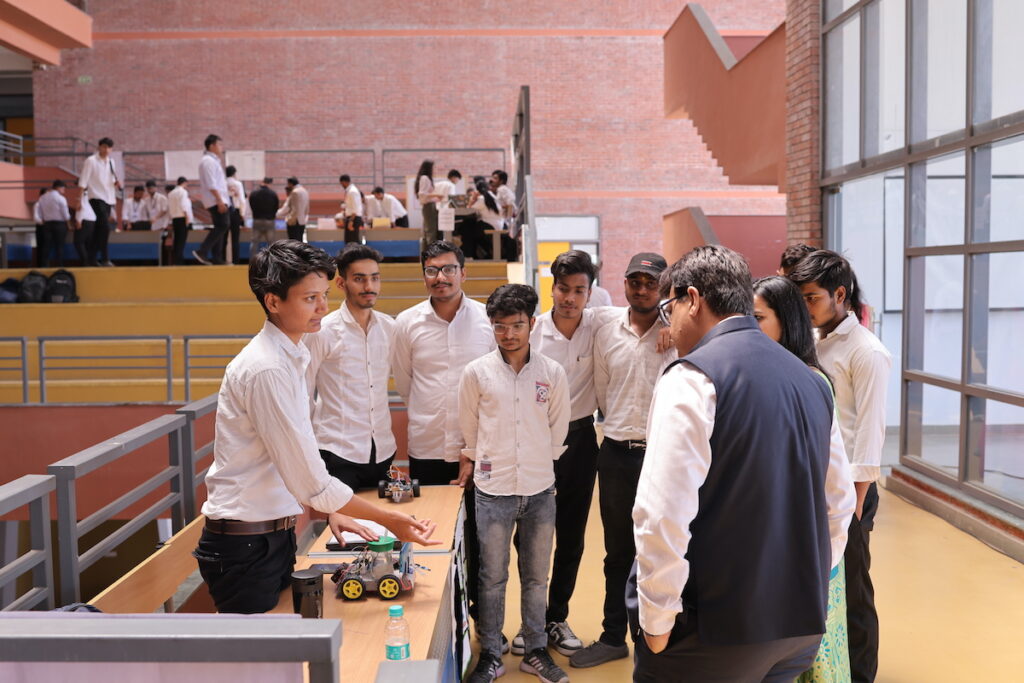
Elective courses in a BCA (Bachelor of Computer Applications) program allow students to expand their knowledge beyond core subjects and specialize in specific areas of interest within the field of information technology and computational studies.
Here are some examples of elective courses commonly offered in BCA programs:
Mobile Application Development
Focuses on developing mobile apps for platforms like Android and iOS using languages like Java, Kotlin, Swift, or frameworks like React Native or Flutter.
Cloud Computing
Covers concepts of cloud computing, virtualization, cloud service models (IaaS, PaaS, SaaS), cloud deployment models (public, private, hybrid), and cloud platforms like AWS, Azure, or Google Cloud.
Artificial Intelligence and Machine Learning:
Introduces principles of artificial intelligence, machine learning algorithms, neural networks, deep learning, natural language processing, and applications of AI in various domains.
Data Analytics and Big Data
Covers techniques for data analysis, data visualization, data mining, predictive analytics, big data technologies like Hadoop and Spark, and tools like Python, R, or Tableau.
Cybersecurity
Focuses on cybersecurity principles, threats, vulnerabilities, risk assessment, cryptography, network security, ethical hacking, and cybersecurity tools and practices.
Web Development Frameworks
Explores advanced web development frameworks and technologies such as Angular, React.js, Vue.js, Node.js, Express.js, and MongoDB.
Software Quality Assurance and Testing
Covers software testing methodologies, test automation, test planning, test case design, defect tracking, and quality assurance processes.
Game Development
Introduces game development concepts, game engines like Unity or Unreal Engine, game design principles, 2D and 3D game development, and game programming.
Digital Marketing
Explores digital marketing strategies, search engine optimization (SEO), search engine marketing (SEM), social media marketing (SMM), email marketing, and web analytics.
E-commerce and Web Security
Covers e-commerce principles, online payment systems, e-commerce platforms, web security threats, secure coding practices, and PCI DSS compliance.
Internet of Things (IoT)
Introduces IoT concepts, IoT architectures, IoT devices and sensors, communication protocols, IoT applications, and IoT platforms.
Blockchain Technology
Explores blockchain principles, distributed ledger technology, cryptocurrencies, smart contracts, decentralized applications (DApps), and blockchain platforms like Ethereum or Hyperledger.
Total Number of Subjects in BCA
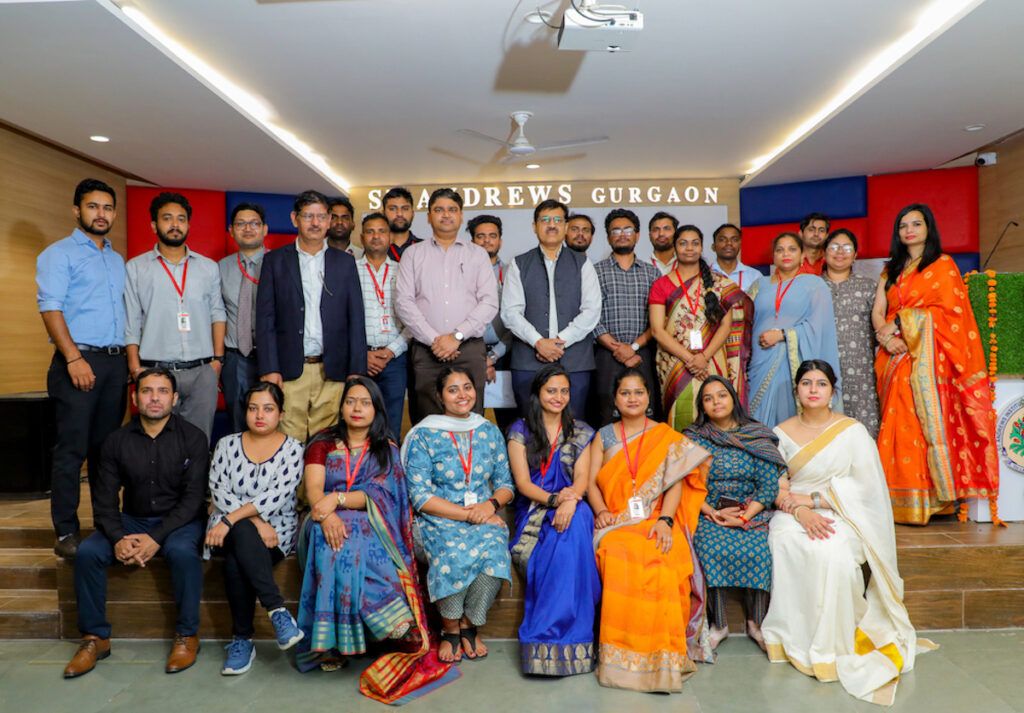
A BCA program typically comprises around 20 to 25 subjects spread across multiple semesters.
These subjects cover a wide range of topics essential for a career in the realm of information technology and computational studies, including:
1. Fundamentals of Computers
2. Programming Principles and Algorithms
3. Data Structures
4. Database Management Systems
5. Operating Systems
6. Computer Networks
7. Software Engineering
8. Object-Oriented Programming (OOP)
9. Web Technologies
10. Mathematics for Computing
11. System Analysis and Design
12. Digital Electronics
13. Communication Skills
14. Project Management
15. Internship or Industrial Training
Interdisciplinary Subjects and Industry Relevance

Interdisciplinary subjects in BCA (Bachelor of Computer Applications) programs play a crucial role in bridging the gap between information technology and other disciplines, enhancing students’ knowledge and skills in diverse areas and increasing their industry relevance.
Here’s how interdisciplinary subjects are incorporated into BCA programs and their industry relevance:
Management and Entrepreneurship
BCA programs often include subjects related to management principles, entrepreneurship, and business communication.
These subjects equip students with essential skills for managing projects, teams, and resources effectively, as well as understanding business requirements and constraints.
This knowledge is valuable for professionals in the field of information technology, working in IT companies, startups, or as freelance professionals, where they may be involved in project management, client interactions, or entrepreneurial ventures.
Mathematics and Statistics
Mathematics and statistics subjects are integral to BCA programs, providing students with the analytical and quantitative skills necessary for information technology and data analysis.
Topics such as probability, calculus, and linear algebra are relevant for understanding algorithms, modeling complex systems, and analyzing data trends.
Professionals with strong mathematical skills, acquired through BCA programs, are well-equipped for roles in data science, machine learning, and quantitative analysis, which are in high demand across various industries.
Communication and Soft Skills
Communication and soft skills are essential for professionals in the field of information technology to effectively convey technical information, collaborate with colleagues, and engage with clients or stakeholders.
Interdisciplinary subjects focusing on communication, presentation skills, teamwork, and leadership help students develop these skills, making them more effective communicators and team players in the workplace.
Strong communication skills enhance the employability and career advancement opportunities of individuals in the field of information technology, as they can effectively interact with diverse audiences and adapt to changing business needs.
Domain-specific Electives
BCA programs may offer elective courses or specializations in specific domains such as healthcare, finance, e-commerce, gaming, or digital media.
These interdisciplinary electives allow students to explore applications of information technology in various industries and gain domain-specific knowledge and expertise.
Professionals with specialized skills in niche domains, acquired through BCA programs, are highly valued by employers looking for individuals who can apply technical solutions to industry-specific challenges and opportunities.
Ethical and Legal Aspects
BCA programs often include subjects covering ethical, legal, and societal implications of computing technologies.
These interdisciplinary subjects raise awareness about ethical issues such as privacy, security, intellectual property, and digital rights, as well as legal regulations and compliance requirements.
Professionals with a strong understanding of ethical and legal considerations, acquired through BCA programs, are better equipped to develop responsible and sustainable technology solutions, ensuring compliance with regulations and ethical standards in their professional practice.
Reasons to Study BCA
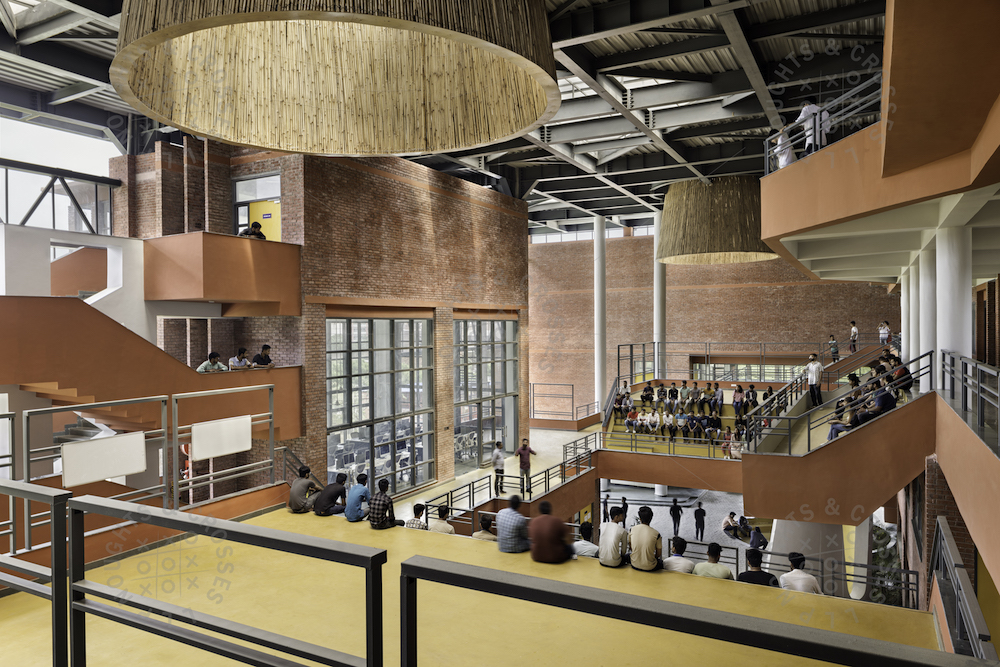
Here’s a brief explanation of the reasons to study BCA:
Graduates of BCA have a wide range of career opportunities, including software development, system analysis, database administration, network administration, web development, and more.
Strong Foundation in Computer Science
BCA provides a comprehensive understanding of computer science fundamentals, including programming, algorithms, and data structures.
Practical Skills for IT Careers
The program equips students with practical skills in software development, database management, networking, and web technologies, preparing them for various roles in the IT industry.
Versatile Career Opportunities
Graduates of BCA have a wide range of career options, including software development, system analysis, database administration, network administration, web development, and more.
Industry-Relevant Knowledge
BCA curriculum is designed to be relevant to the needs of the IT industry, ensuring that students learn skills and technologies that are in demand by employers.
Hands-On Projects and Internships
BCA programs often include hands-on projects and internships, allowing students to apply their knowledge in real-world scenarios and gain valuable practical experience.
Preparation for the Dynamic IT Field
With the rapid advancements in technology, the IT field is constantly evolving. BCA prepares students to adapt to these changes and stay updated with the latest trends and developments in the industry.
Three-Year Undergraduate Program
BCA is typically a three-year undergraduate program, offering a relatively shorter duration compared to traditional engineering programs while still providing a strong foundation in computer science.
Proliferation of BCA Colleges
There has been a significant increase in the number of BCA colleges in India. When choosing a BCA college, consider factors such as overall growth, job readiness, and specific requirements to ensure a well-rounded education and better career prospects.
BCA subjects Semester-Wise Breakdown

The semester-wise breakdown of a typical BCA (Bachelor of Computer Applications) program in India may vary slightly depending on the university or institution offering the course.
However, here’s a general breakdown:
First Year-
Semester 1:
- Fundamentals of Computers and Digital Computer Fundamentals
- Mathematics I
- Programming Principles and Algorithms
- Digital Electronics
- Communication Skills
Semester 2:
- Data Structures
- Mathematics II
- Object-Oriented Programming using C++
- Computer Organization and Architecture
- Environmental Science
Second Year-
Semester 3:
- Database Management Systems
- Software Engineering
- Computer Networks
- Web Technology
- Business Communication
Semester 4:
- Operating Systems
- Java Programming
- System Analysis and Design
- Numerical Methods and Statistical Techniques
- Organizational Behaviour
Third Year-
Semester 5:
- Principles of Management
- Internet Programming and Cyber Law
- Computer Graphics
- Advanced Java Programming
- Elective I (e.g., Mobile Application Development, Cloud Computing)
Semester 6:
- Data Mining and Warehousing
- Software Testing
- Project Work
- Elective II (e.g., Artificial Intelligence, E-commerce)
- Elective III (e.g., Information Security, Digital Image Processing)
BCA Core Subjects

Here’s a detailed explanation of some core BCA subjects commonly found in BCA program:
Core Subjects in BCA
Programming Languages
Students learn various programming languages such as C, C++, Java, and Python. These languages form the foundation for software development and problem-solving skills.
Database Management Systems
This subject covers the concepts of database design, SQL, and database administration. Students gain hands-on experience in managing and manipulating databases.
Computer Networks–
Students are introduced to the principles of networking, including network topologies, protocols, and security. This subject is crucial for understanding how data is transmitted and received over networks.
Software Engineering–
This subject focuses on the methodologies and tools used in software development. Students learn about software development life cycles, project management, and quality assurance.
Web Technologies
This subject covers the basics of web development, including HTML, CSS, JavaScript, and web frameworks. Students learn to create and manage websites and web applications.
Operating Systems–
Students study the functions and components of operating systems, including process management, memory management, and file systems. This knowledge is essential for understanding how software interacts with hardware.
Data Structures and Algorithms
This subject teaches students about various data structures (like arrays, linked lists, trees, and graphs) and algorithms (such as sorting and searching). These concepts are fundamental for efficient problem-solving and programming.
Data Analytics
Data Analytics covers the process of extracting insights from data. Students learn about data collection, data cleaning, data visualization, and statistical analysis techniques.
BCA Course Subjects
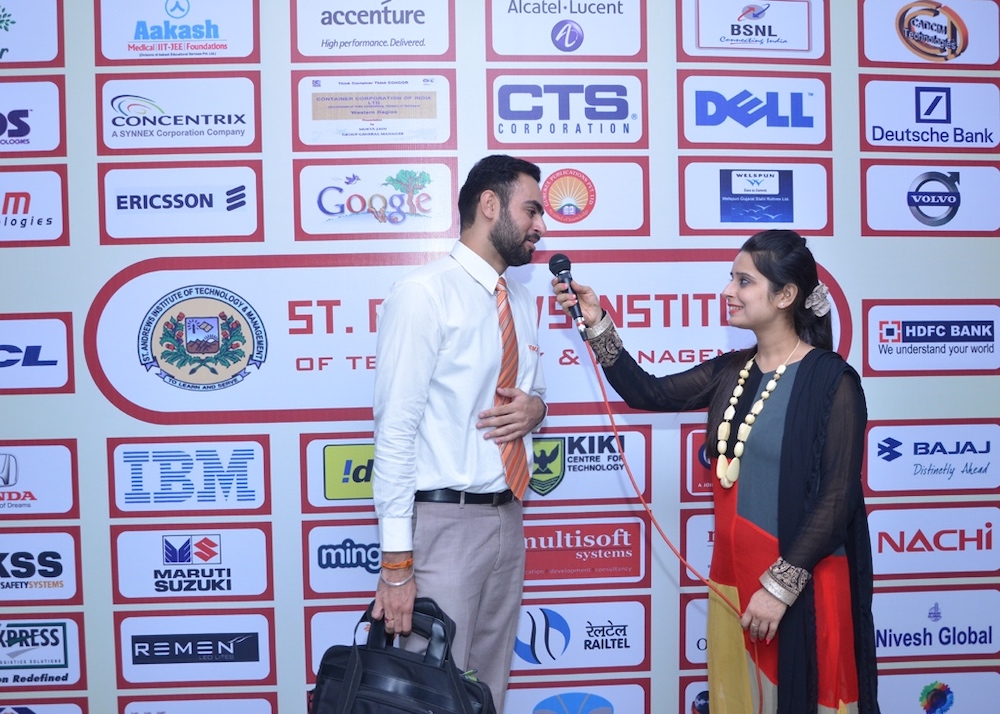
The BCA course subjects cover a wide range of topics essential for a comprehensive understanding of computer applications. These subjects include database management systems, operating systems, software engineering, computer architecture, web technology, and specific programming languages such as C, C++, HTML, and Java.
Fundamentals of Computers:
This subject provides an introduction to the basic concepts of computers, including the history of computing, computer hardware, software, input/output devices, memory, and storage devices. Students learn about the functioning of a computer system, its components, and their interactions.
Programming Principles and Algorithms:
This subject focuses on the fundamental principles of programming and problem-solving techniques. Students learn about algorithm design, control structures (such as loops and conditional statements), data types, variables, functions, and basic debugging techniques. Languages like C, C++, or Python may be used to implement algorithms.
Data Structures:
Data Structures deals with organizing and managing data efficiently. Students learn about various data structures such as arrays, linked lists, stacks, queues, trees, and graphs. They study algorithms for searching, sorting, and manipulating data structures, as well as the analysis of their time and space complexities.
Database Management Systems (DBMS)
DBMS introduces students to the concepts of database design, creation, management, and querying using SQL (Structured Query Language). They learn about relational database models, normalization, entity-relationship modeling, transactions, concurrency control, and database security.
Operating Systems:
Operating Systems covers the principles and functions of operating systems, including process management, memory management, file systems, input/output management, and security. Students gain an understanding of concepts like multitasking, multiprocessing, scheduling algorithms, memory allocation, and device management.
Computer Networks:
This subject introduces students to the fundamentals of computer networks and communication protocols. They learn about the OSI (Open Systems Interconnection) model, TCP/IP protocols, network devices (such as routers and switches), LANs (Local Area Networks), WANs (Wide Area Networks), network security, and network administration.
Software Engineering:
Software Engineering focuses on the principles and methodologies of software development. Students learn about software development life cycle models, requirements engineering, software design, coding practices, testing techniques, software maintenance, and software project management.
Object-Oriented Programming (OOP):
OOP introduces students to the principles of object-oriented programming, emphasizing concepts such as classes, objects, inheritance, polymorphism, encapsulation, and abstraction. They learn to design and implement object-oriented solutions to problems using languages like Java or C++.
BCA Specializations
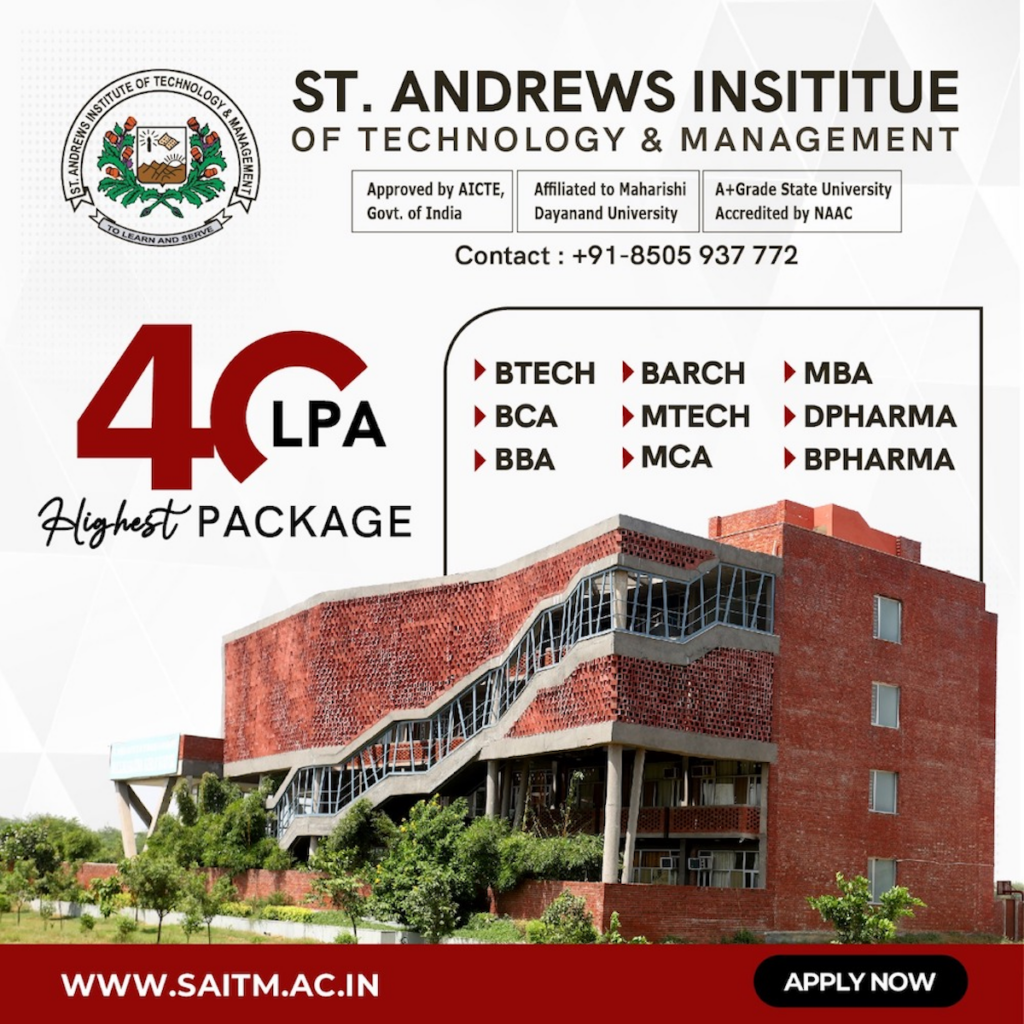
While BCA (Bachelor of Computer Applications) programs typically offer a broad curriculum covering various aspects of computer science and information technology, some institutions may offer specializations or elective courses in specific areas to allow students to tailor their education according to their interests and career goals.
Here are some common specializations found in BCA programs:
Software Development
This specialization focuses on the development of software applications. Students learn programming languages, software engineering principles, and methodologies to design, develop, test, and maintain software systems. They may also study topics like software architecture, design patterns, and version control systems.
Web Development
Web development specialization covers technologies and techniques used to create dynamic and interactive websites and web applications. Students learn front-end technologies such as HTML, CSS, JavaScript, and frameworks like React or Angular, as well as back-end technologies like server-side scripting languages (e.g., PHP, Python, Node.js) and databases.
Mobile Application Development:
This specialization focuses on developing applications for mobile devices such as smartphones and tablets. Students learn mobile development platforms like Android and iOS, programming languages (Java, Kotlin, Swift), mobile app design principles, user experience (UX) design, and mobile app testing.
Database Management
Database management specialization focuses on the design, implementation, and management of databases. Students learn about relational database management systems (RDBMS), database modeling, SQL (Structured Query Language), database administration, data warehousing, and data mining techniques.
Network Administration
Network administration specialization focuses on the design, implementation, and maintenance of computer networks. Students learn about network protocols, routing, switching, network security, network management tools, and emerging technologies like cloud networking and virtualization.
Information Security
Information security specialization focuses on protecting computer systems, networks, and data from unauthorized access, misuse, and cyber threats. Students learn about cryptography, network security, cybersecurity policies, ethical hacking techniques, incident response, and risk management.
Artificial Intelligence and Machine Learning
This specialization explores the principles and applications of artificial intelligence (AI) and machine learning (ML). Students learn about algorithms, data mining, natural language processing, computer vision, neural networks, and deep learning techniques.
Cloud Computing:
Cloud computing specialization focuses on delivering computing services over the internet, including storage, databases, servers, networking, software, and analytics. Students learn about cloud architecture, deployment models (public, private, hybrid), cloud service models (IaaS, PaaS, SaaS), and cloud security.
Data Science
Data science is a popular specialization in the BCA course, focusing on the extraction, analysis, and interpretation of data. Students learn about data mining, machine learning, and statistical analysis techniques.
Data Analytics
Data analytics is another specialization in the BCA course, covering the process of extracting insights from data.
BCA Course Assessment
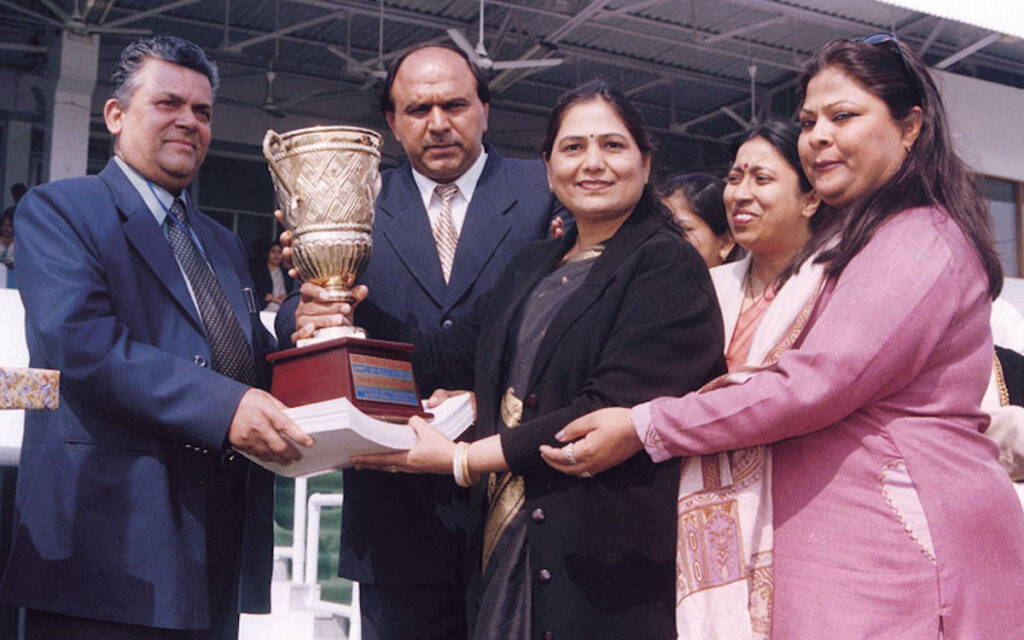
BCA (Bachelor of Computer Applications) course assessment typically involves a variety of methods to evaluate students’ understanding of the subject matter, as well as their practical skills and abilities.
Here’s a detailed explanation of the various components of BCA course assessment:
Written Examinations
Midterm Exams
These exams are usually conducted halfway through the semester to assess students’ understanding of the topics covered in the first half of the course.
End-of-Semester Exams
At the end of each semester, comprehensive exams are held to evaluate students’ knowledge of the entire semester’s curriculum.
Assignments and Homework
Students are often assigned regular homework and assignments throughout the semester. These tasks may include solving programming problems, writing essays, completing projects, or conducting research.
Assignments provide an opportunity for students to apply theoretical concepts learned in class to real-world problems and reinforce their understanding of the material.
Practical Assessments
Practical assessments evaluate students’ ability to apply their knowledge to practical tasks. This may include programming assignments, laboratory exercises, or software development projects.
Students are assessed on their ability to write code, design algorithms, debug programs, and develop software solutions according to specified requirements.
Presentations
Some courses may require students to deliver presentations on specific topics related to the course curriculum. Presentations assess students’ communication skills, ability to research and analyze information, and their understanding of the subject matter.
Presentations may be individual or group-based and may involve visual aids such as slideshows or demonstrations.
Quizzes and Tests
In addition to midterm and final exams, instructors may administer quizzes and tests throughout the semester to assess students’ understanding of specific topics or concepts.
Quizzes may be conducted in class or online and may include multiple-choice questions, short-answer questions, or problem-solving tasks.
Project Work
Many BCA courses include a project component where students work on a larger-scale project over the course of the semester or year. Projects may be individual or group-based and typically involve software development, database design, or system analysis and design.
Students are assessed on their ability to plan, execute, and document their projects, as well as the quality and functionality of the final deliverables.
Internship or Industrial Training
Some BCA programs require students to complete an internship or industrial training as part of their course requirements. During this period, students work in a professional IT environment, gaining hands-on experience and practical skills.
University-Wise BCA Syllabus

Here’s a overview of the typical subjects covered in a BCA program in most universities such as St. Andrews Institute of Technology and Management, Gurgaon, DU,Jamia Millia Islamia , Aligarh Muslim University ,Guru Gobind Singh Indraprastha University, etc:
Fundamentals of Computers
Programming Principles and Algorithms
Data Structures
Database Management Systems
Operating Systems
Computer Networks
Software Engineering
Object-Oriented Programming (OOP)
Web Technologies
Mathematics for Computing
System Analysis and Design
Digital Electronics
Communication Skills
These subjects provide students with a comprehensive understanding of computer science principles, programming languages, database management, network administration, web development, and more.
BCA Career Opportunities

Job Profiles
BCA (Bachelor of Computer Applications) opens up a wide range of career opportunities in the field of information technology.
Here’s a detailed explanation of some of the career paths available to professionals with a BCA background:
Software Engineering–
Professionals with a BCA background can work as software developers or engineers, designing, developing, testing, and maintaining software applications and systems.
They may specialize in various domains such as web development, mobile app development, desktop application development, or enterprise software development.
System Analyst
System analysts analyze and design information systems to meet the needs of businesses or organizations.
They work closely with stakeholders to understand requirements, evaluate existing systems, and propose solutions to improve efficiency and effectiveness.
Database Administrator (DBA)
Professionals with a BCA background can pursue careers as database administrators, responsible for managing and maintaining databases.
They ensure data integrity, security, and availability, optimize database performance, and troubleshoot issues as they arise.
Network Administrator
Network administrators are responsible for managing and maintaining computer networks within an organization.
They configure network devices, monitor network performance, troubleshoot network issues, and ensure network security.
Web Developer
Web developers design and create websites and web applications using programming languages such as HTML, CSS, JavaScript, and various web development frameworks.
They may work on front-end development, back-end development, or full-stack development, depending on their skills and interests.
Mobile Application Developer
Professionals with a BCA background can specialize in mobile application development, creating applications for smartphones and tablets.
They develop apps for platforms like Android, iOS, or cross-platform frameworks like React Native or Flutter.
Quality Assurance (QA) Engineer/Tester
QA engineers or testers ensure the quality and reliability of software applications by testing them thoroughly before release.
They design test cases, execute tests, report bugs, and work with developers to resolve issues.
IT Consultant
IT consultants provide expert advice and guidance to businesses on how to utilize technology effectively to achieve their goals.
They may offer services such as system analysis, software selection, project management, or IT strategy development.
Cybersecurity Analyst
With the increasing threat of cyber attacks, cybersecurity analysts play a crucial role in protecting organizations’ data and systems from security breaches.
They monitor for security threats, implement security measures, conduct security audits, and respond to incidents.
Data Analyst/Scientist
Professionals with a BCA background can work as data analysts or data scientists, analyzing large datasets to uncover insights and make data-driven decisions.
They use statistical analysis, data mining techniques, and machine learning algorithms to extract valuable information from data.
BCA top Recruiters
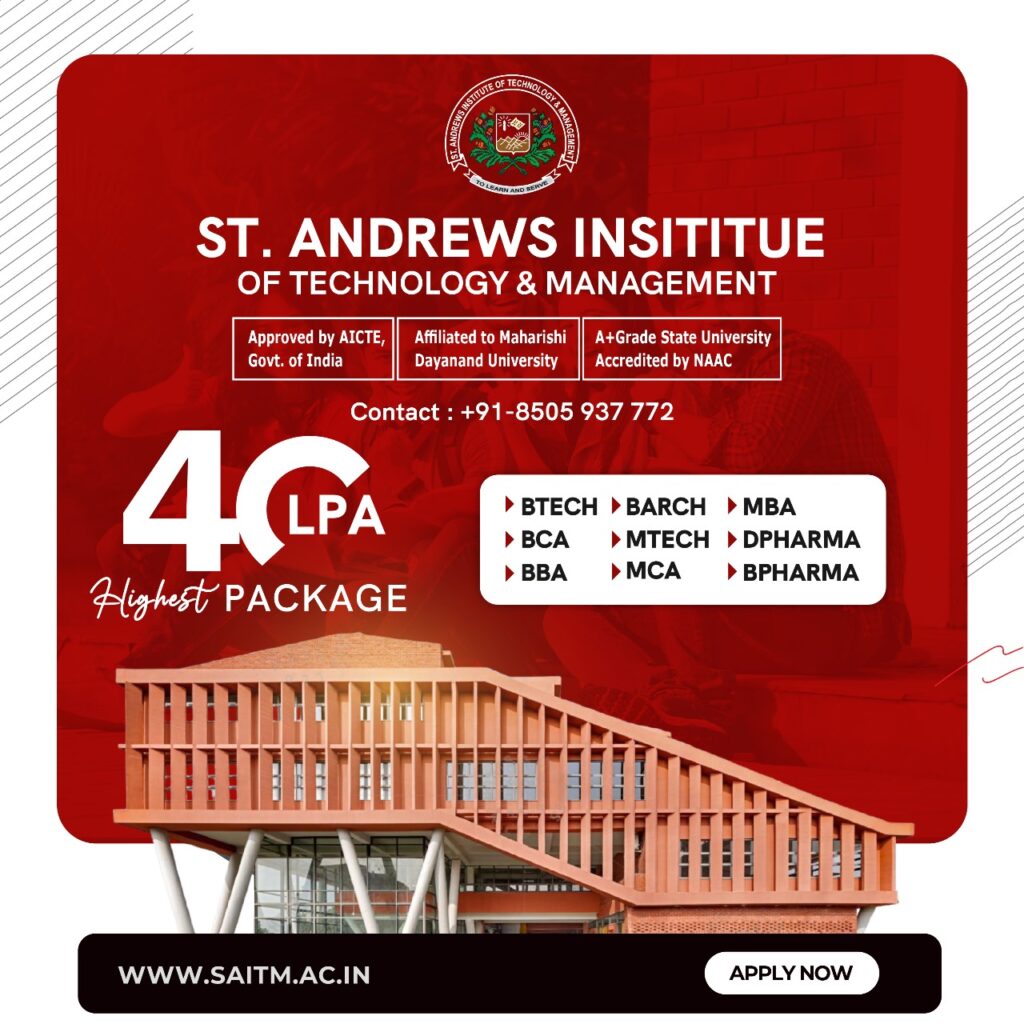
BCA (Bachelor of Computer Applications) professionals are highly sought after by a variety of employers in both the public and private sectors.
Here’s a detailed explanation of some of the top recruiters for professionals with a BCA background:
IT Companies
Leading IT companies such as Tata Consultancy Services (TCS), Infosys, Wipro, HCL Technologies, Tech Mahindra, and Cognizant are among the top recruiters of professionals with a BCA background.
These companies offer a wide range of job opportunities in software development, application support, quality assurance, IT consulting, and more.
Software Development Firms
Many software development firms, both large and small, hire professionals with a BCA background to work on projects ranging from web development and mobile app development to enterprise software solutions.
Examples include Accenture, IBM, Capgemini, Oracle, Microsoft, Adobe, and Google.
Banking and Financial Services
Banks and financial institutions often recruit professionals with a BCA background for roles related to IT operations, software development, database management, and cybersecurity.
Companies such as HDFC Bank, ICICI Bank, State Bank of India (SBI), Axis Bank, and Citibank are among the top recruiters in this sector.
Consulting Firms
Consulting firms like Deloitte, Ernst & Young (EY), PricewaterhouseCoopers (PwC), and KPMG hire BCA graduates to work on IT consulting projects for their clients.
BCA graduates may be involved in areas such as system analysis, software implementation, process optimization, and IT strategy.
Telecommunication Companies
Telecommunication companies such as Bharti Airtel, Vodafone Idea, Reliance Jio, and Ericsson recruit BCA graduates for roles in network administration, software development, IT support, and data analytics.
E-commerce and Retail
E-commerce giants like Amazon, Flipkart, and Alibaba, as well as retail companies like Walmart and Reliance Retail, hire BCA graduates for various IT-related roles.
BCA graduates may work on website development, e-commerce platforms, inventory management systems, data analytics, and more.
Healthcare and Pharmaceuticals
Healthcare organizations and pharmaceutical companies recruit BCA graduates to work on IT projects related to electronic health records (EHR), healthcare informatics, medical imaging, and drug discovery.
Examples include Apollo Hospitals, Fortis Healthcare, Pfizer, and Novartis.
Government Sector
Government agencies at the national, state, and local levels also hire BCA graduates for IT-related roles.
Salary and Scope in BCA
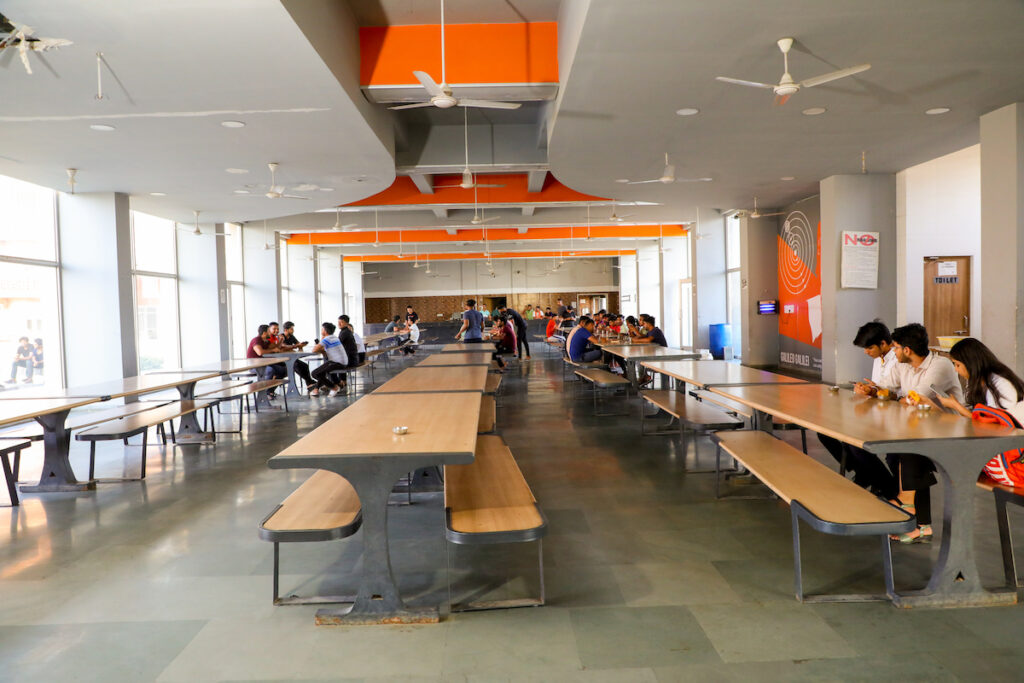
Scope of BCA-
Vast Career Opportunities:
BCA opens up a wide array of career opportunities in the field of information technology. Graduates can explore roles in software development, system analysis, database administration, network administration, web development, mobile app development, cybersecurity, and more.
Versatility
The BCA curriculum covers a broad range of subjects, providing graduates with versatile skills and knowledge that are applicable across various industries and domains. BCA graduates can work in sectors such as IT services, banking and finance, healthcare, e-commerce, telecommunications, government, and consulting.
Continuous Demand
With the rapid advancement of technology, there is a continuous demand for skilled IT professionals. BCA graduates are sought after by employers to meet the growing need for software solutions, digital transformation, data management, cybersecurity, and IT infrastructure.
Opportunities for Specialization
BCA courses often offer elective courses or specializations in specific areas such as software development, web development, mobile app development, database management, networking, cybersecurity, and artificial intelligence. This allows students to tailor their education according to their interests and career goals.
Further Education
BCA serves as a foundation for further education and specialization. Graduates can pursue postgraduate studies such as MCA (Master of Computer Applications), MBA (Master of Business Administration) with a focus on IT management, MS (Master of Science) in computer science, or specialized certifications in areas like cloud computing, data analytics, cybersecurity, and project management.
Salary of BCA Graduates
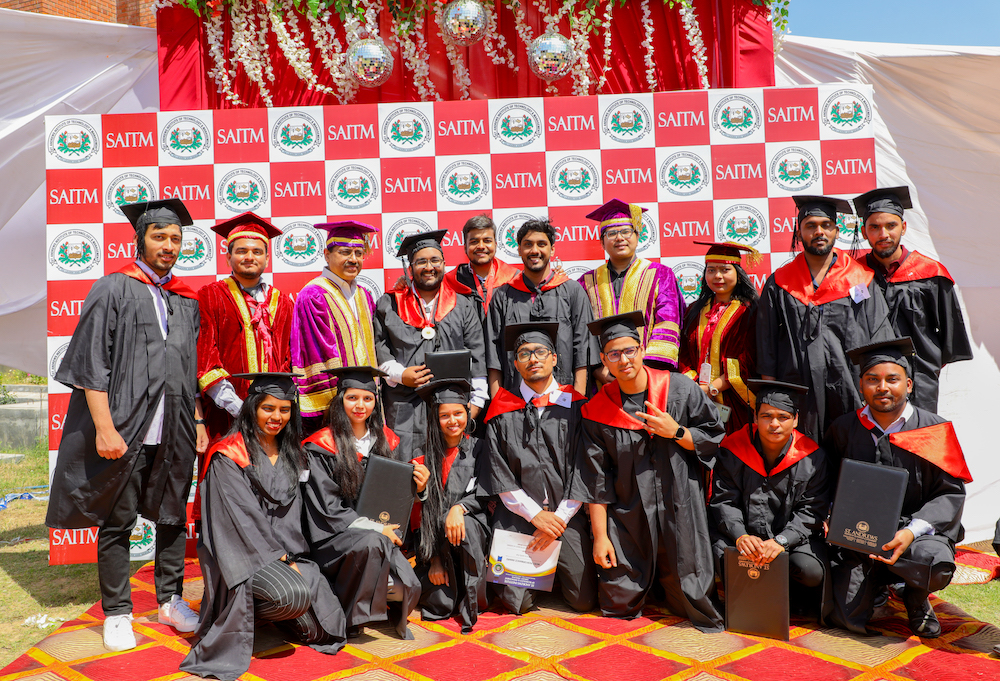
Entry-Level Positions
Fresh BCA graduates typically start their careers with entry-level positions such as software developer, system analyst, web developer, or network administrator. The starting salary for these roles may vary depending on factors such as location, employer, and individual skills, but it is generally competitive.
Mid-Level Positions
With experience and expertise, BCA graduates can progress to mid-level positions such as senior software engineer, database administrator, IT consultant, or project manager. Mid-level positions offer higher salaries and additional responsibilities.
Senior-Level Positions
Senior-level roles such as IT manager, solution architect, technical lead, or senior consultant are attainable for experienced BCA professionals who demonstrate leadership, strategic thinking, and domain expertise. Salaries for senior-level positions are typically higher and may include additional perks and benefits.
Industry and Location Factors
The salary of BCA graduates can vary significantly depending on the industry, location, employer size, and demand-supply dynamics. IT hubs like Bangalore, Pune, Hyderabad, Chennai, and NCR region typically offer higher salaries due to the concentration of IT companies and higher cost of living.
Certifications and Specializations
BCA graduates who acquire additional certifications, specialized skills, or domain expertise may command higher salaries. Certifications in areas such as cloud computing (e.g., AWS, Azure), data analytics (e.g., SQL, Python, R), cybersecurity (e.g., CISSP, CEH), or project management (e.g., PMP, PRINCE2) can enhance earning potential.
FAQs
What are the subjects in BCA?
BCA (Bachelor of Computer Applications) typically covers subjects such as Fundamentals of Computers, Programming Principles, Data Structures, Database Management, Operating Systems, Computer Networks, Software Engineering, Object-Oriented Programming, Web Technologies, Computer Architecture, System Analysis, Digital Electronics, Mathematics for Computing, Information Security, Mobile Application Development, Cloud Computing, Artificial Intelligence, Data Analytics, Project Management, and Internship.
These subjects provide students with a comprehensive understanding of computer science principles, programming languages, database management, network administration, web development, and emerging technologies, preparing them for diverse careers in the IT industry.
How many subjects will be there in BCA?
A typical BCA course comprises around 20 to 25 subjects spread across six semesters. These subjects cover a wide range of topics essential for a career in the field of information technology. Core subjects include Fundamentals of Computers, Programming Principles, Data Structures, Database Management, Operating Systems, Computer Networks, Software Engineering, and Web Technologies.
Additional subjects may focus on specialized areas such as Artificial Intelligence, Cloud Computing, Mobile Application Development, and Data Analytics. The curriculum also often includes mathematics courses relevant to computing, as well as practical training through internships or projects.
What are the subjects in BCA in 1st year?
In the first year of BCA (Bachelor of Computer Applications), students typically study foundational subjects essential for building a strong understanding of computer science. Common subjects include Fundamentals of Computers, Mathematics I, Programming Principles and Algorithms, Digital Electronics, and Communication Skills.
These subjects introduce students to basic computing concepts, mathematical principles relevant to computing, programming fundamentals, and digital electronics.
They lay the groundwork for subsequent years of study by providing a solid foundation in essential topics necessary for further exploration of computer science and information technology.
Is BCA hard or easy?
The difficulty of BCA (Bachelor of Computer Applications) can vary depending on individual aptitude, prior knowledge, and dedication to learning. While some students may find certain concepts challenging, others may grasp them more easily.
BCA requires a strong understanding of mathematics, logical reasoning, and problem-solving skills, which can pose challenges for some students. However, with consistent effort, practice, and effective study habits, BCA can be manageable and rewarding.
The practical nature of the program, coupled with hands-on projects and internships, helps students apply theoretical concepts to real-world scenarios, facilitating learning and making the program more engaging.
Can I do BCA without maths?
The eligibility criteria for BCA courses may vary depending on the university or institution offering the course. While mathematics is often considered a prerequisite for BCA due to its relevance to computer science and programming, some universities may offer BCA courses that do not require mathematics as a mandatory subject.
In such cases, the university may provide alternative eligibility criteria or pathways for admission.
For example, students without mathematics background may be required to demonstrate proficiency in other related subjects or may need to take additional foundation courses in mathematics or computer science before or during the BCA course.
What is the syllabus of BCA 1st year?
Here’s a general overview of the common subjects included in the first year of BCA course:
Fundamentals of Computers: Introduction to computer hardware, software, operating systems, data representation, computer architecture, and basic computer operations.
Mathematics I: Topics may include sets, relations, functions, algebraic expressions, quadratic equations, matrices, determinants, and coordinate geometry.
Programming Principles and Algorithms: Introduction to programming concepts, problem-solving techniques, algorithm design, flowcharting, and programming constructs such as loops, decision making, and functions.
Digital Electronics: Basics of digital electronics, binary number system, logic gates, Boolean algebra, combinational and sequential circuits, and digital logic design.
Communication Skills: Development of communication skills including listening, speaking, reading, and writing. Emphasis on comprehension, vocabulary, grammar, and verbal/non-verbal communication.

